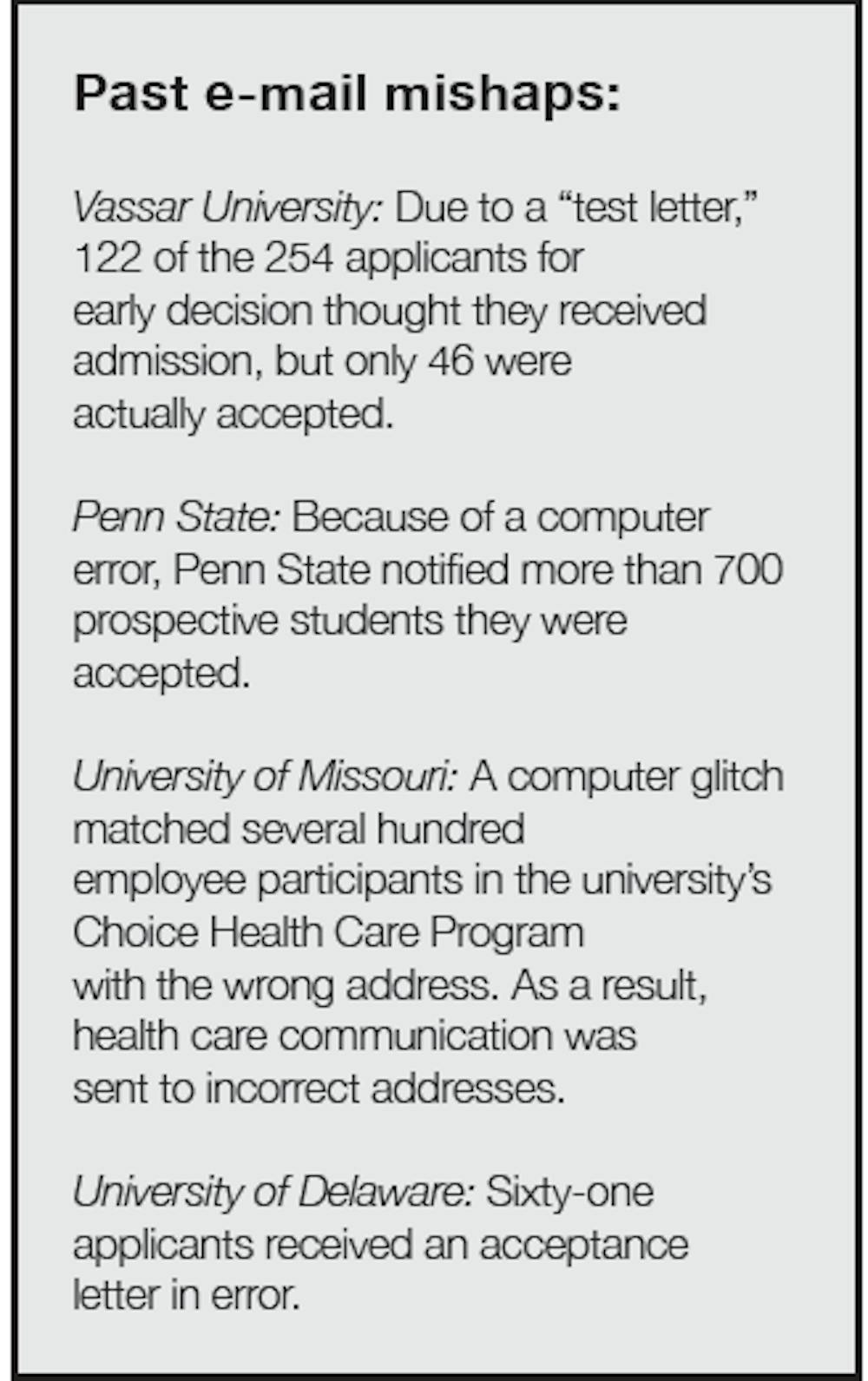 Accidental acceptance notifications and updates regarding false emergencies have recently plagued colleges with slip-ups in email systems. Faculty oversight has caused errors in electronic communication, and although Elon University has procedures in place to prevent mistakes, the university is no stranger to such errors.
Accidental acceptance notifications and updates regarding false emergencies have recently plagued colleges with slip-ups in email systems. Faculty oversight has caused errors in electronic communication, and although Elon University has procedures in place to prevent mistakes, the university is no stranger to such errors.
In a past incident, a group of prospective Elon students received an invitiaton to an on campus event intended for accepted students, according to Melinda Wood, assistant dean of admissions and director of applications.
“Instead of retracting the invitation, we modified the event schedule to ensure programming for all students,” she said.
Recently, the attention has been on Vassar College for these email hiccups. According to The New York Times, the university intended to accept 46 students to the incoming class, but more than 100 students were welcomed electronically into the Class of 2016. Vassar apologized, and said they had sent out a “test letter,” not the actual admissions decision, according to an article published by CNN.
These instances are incredibly crushing for students, especially if the college was a top choice, Elon freshman Emma Kwiatkowski said.
“My friend’s top school sent out rejection letters to everyone who applied," Kwiatkowski said. "They later sent out an apology letter saying it was a mistake. A few days later, my friend received a letter saying she was put on the waitlist for that school. It is awful enough that someone has to go through one rejection, but she got her hopes up only to be rejected again."
At Elon, emails are regularly circulated concerning events on campus. This Week @Elon can be expected every week, and emails from Smith Jackson, vice president and dean of student life, are an Elon tradition. Elon University has certain procedures to prevent such incidents, according to Chris Fulkerson, assistant vice president for technology and CIO.
“These are human errors,” he said. “Every article I’ve read about these situations is because someone made a mistake in querying a database or sent an e-mail before everything was finalized and checked.”
The admissions office uses a matrix communications series, a process used to ensure multiple people have viewed the email before it is distributed, to send students the information that accurately pertains to them.
“Several staff members review outgoing communication, especially on admissions notification days to ensure accuracy of admission decisions,” Wood said.
Even with the procedures in place, Jackson sent out an email last May warning of a snow delay, even though the weather was 70 degrees and sunny.
“I’m not sure how the email I sent in January of last year during a snow storm got hung up and was released in the late spring,” Jackson said. “As soon as this was brought to my attention, within seconds, I checked with Information Technology to see if my account was hacked. It was not, and I immediately followed up with students by notifying them that the email was incorrect.”
Wood acknowledged that human oversights are at the root of the electronic miscommunication.
“No office is immune to error,” Wood said.


